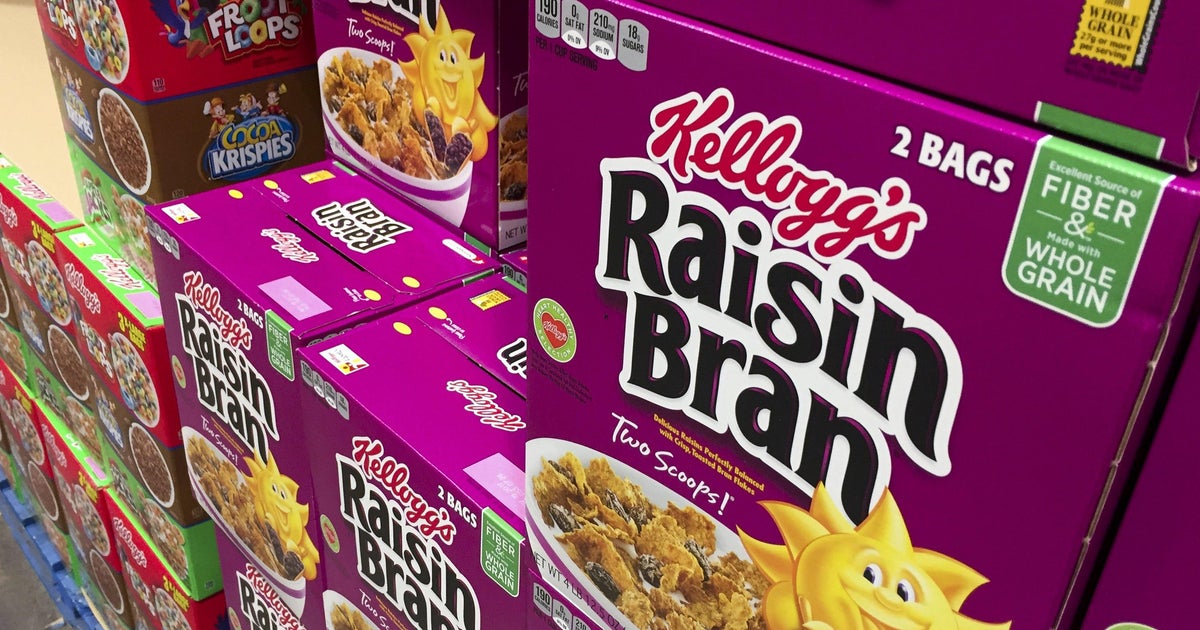Big food companies condemn government proposals to regulate labeling of ‘healthy’ foods

Manufacturers are objecting as the federal government moves to change rules about which foods can be labeled “healthy.”
Some of the largest makers of cereals, frozen foods and packaged foods have filed a number of calls with the Food and Drug Administration to oppose new rules that exclude foods with large amounts of added sugar or salt from being labeled “healthy” on packages. I have filed ten complaints. Some manufacturers have even called the regulation unconstitutional, saying it violates a company’s First Amendment rights.
The FDA moved last fall to update the requirements for foods that can use the word “healthy” on their packaging. This is the first change since the rule came into force in the 1990s. The proposed change would exclude high-sugar, low-fat products that are currently allowed to use health labels, such as fruit-flavored low-fat yogurt and raisin bran cereal.
This is unfair, many food companies complain, complaining that stricter nutritional standards would falsely denigrate various popular foods. We will automatically disqualify the entire category,” Kellogg wrote in a Feb. 16 comment on the agency’s proposal.
General Mills further argues that the FDA’s “overly restrictive” rule violates companies’ right to free speech.
“[T]The proposed rule would prevent many objectively healthy products, including those promoted by dietary guidelines, from engaging in true and non-misleading commercial representations.
General Mills has many famous facilities. brandAnnie’s, Betty Crocker, Cascadian Farm, Pillsbury, Yoplait, Cereal Chex, Cheerios, Choco Puffs, Cinnamon Toast Crunch, Raisin Nut Bran, Wheaties and more.
The window for submitting public comments on the proposed rule closed earlier this month. The timing of the final rule is unknown, but FDA will consider feedback.
The Consumer Brands Association, whose members include Coca-Cola, PepsiCo, Hine Celestial, and the Campbell Soup Company, has adopted a similar policy, stating that “consumers have a First Amendment right to truthful information about their products. , manufacturers have First Amendment rights.” provide them. The group estimates that 95% of the foods currently on the market cannot qualify for the ‘healthy’ label under the government’s new requirements.
Granola bar company KIND challenged the FDA’s proposed limits on the addition of sugar in foods, saying it “created a barrier to innovation in fruit, vegetable, and protein foods,” and added artificial sweeteners to its products. said that it will lead to more companies using and imitating. The taste of food sweetened with sugar.
“The criteria for ‘healthy’ use should not be so restrictive that only a very limited number of foods are eligible. could conclude that is ‘unhealthy’,” the company added.
No labels, no customers?
Conagra Brands, creator of the ‘Healthy Choice’ brand of frozen foods, provided a candid assessment.If they reinvented the “Healthy Choice” to comply with the new rules, people would stop buying it and the company would Said.
“Conagra cannot continue to invest in ‘healthy’ innovations unless it meets consumer expectations of necessary taste, food trends and affordability. People don’t buy it,” Conagra said.
Many “healthy choice” products have been criticized for being high in sugar and salt. For example, the Healthy Choice Sweet and Sour Chicken meal contains 21 grams of sugar, which is 42% of the current recommended daily intake, and provides only 390 calories.
“Meet people on the spot”
The American Institute of Frozen Foods said that sodium restrictions would result in “nutritious frozen foods being excluded to make it much more likely that small amounts of sauce will be consumed.”
“Consumers already know that whole fruits and vegetables are healthy and may not consume such products for a variety of reasons,” the institute said, adding that the FDA said, “People are He added that he should “meet people at places.”
The Consumer Brands Association agreed with this comment, writing: Consumers generally do not eat food that is tasteless and odorless. ”
Despite this industry frustrations, many nutrition experts support the FDA’s revised guidelines. The requirements for the “Healthy” label have remained unchanged for 28 years since they were first created. This is despite a general understanding of what is nutritious.
“We would like to use policies that advocate healthier eating than we currently have, so we believe that health claims should only be allowed on truly healthy foods. “Public interest.” The CSPI largely supports the new rules, but argues that there are too many refined grains and processed fruits.
strong marketing
The FDA’s proposed rule would not ban foods high in sugar, sodium, or refined grains. Rather, food manufacturers would not be allowed to label such products as “healthy,” and this could be a strong marketing claim.
“There are now some products labeled as ‘healthy’ that contain unusual amounts of sugar,” Greenthal said.
It’s a holdover from the low-fat craze of the early 90’s. At that time, processed food manufacturers created a plethora of supposedly low-fat snacks containing high amounts of sugar and salt to make up for the lost flavor. Since then, research has overturned the belief that all fats are bad for your health and has demonstrated the harmful effects of high sugar consumption.
Greenthal thinks the revised FDA guidelines are largely positive, but doesn’t think it will have a major impact on American diets.
“What we really need is a mandatory label that compels companies to disclose information they keep secret,” she said. “Companies are very quick to tell us if a product is high in fiber or vitamin C, but not if it’s high in saturated fat, sodium, or sugar. and products related to heart disease. Diabetes.”
CSPI recently petitioned the FDA to require food manufacturers to display these ingredients prominently on the front of food packages.
“Facing industry pressure to put industry interests ahead of public health, FDA needs to consider its mission to protect public health and use that as a guide,” said Greenthal. has said.
https://www.cbsnews.com/news/fda-healthy-label-food-general-mills-conagra-kellogg-first-amendment/ Big food companies condemn government proposals to regulate labeling of ‘healthy’ foods



